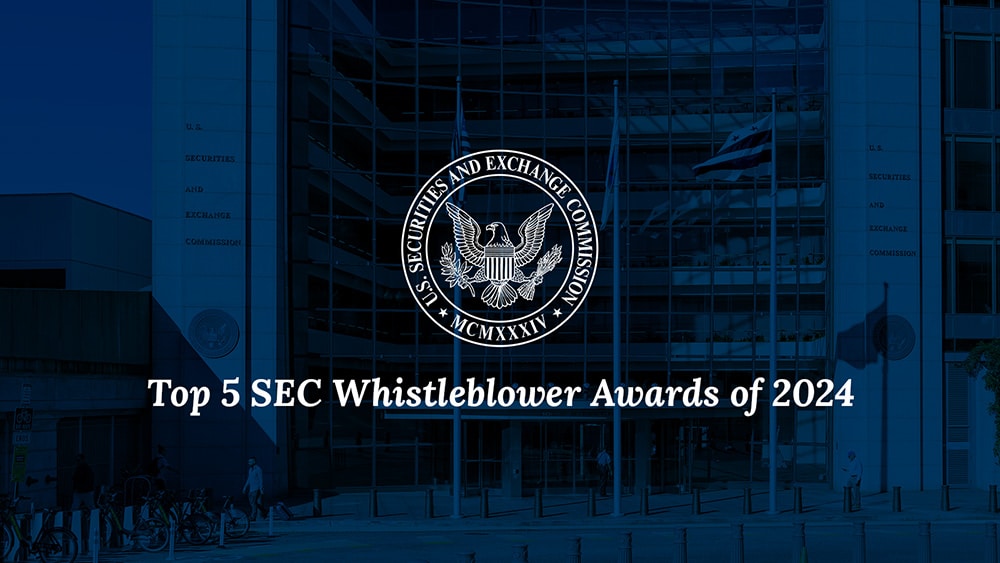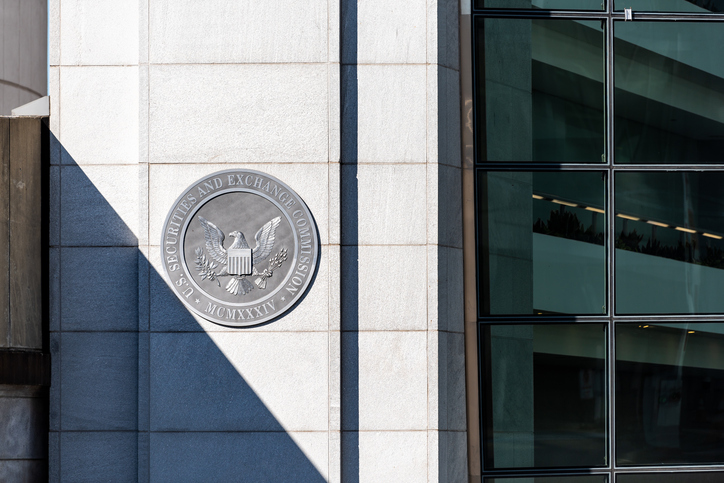May 14, 2025

This information is provided for educational purposes only by Kohn, Kohn & Colapinto and does not constitute legal advice. No attorney-client relationship is created by accessing this content. Laws and regulations may change, and this material may not reflect the most current legal developments. If you believe you have a whistleblower claim, consult a qualified attorney to discuss your specific circumstances.
Advance fee fraud is a type of scam where an investor is asked for an upfront fee in advance of receiving stocks, money, or warrants. This is generally asked for a deal to go through. Fraudsters will often ask investors to wire these advanced to escrow agents or lawyers to make the scheme appear more legitimate. However, these advance fees are completely bogus. They generally come in the form of a deposit, processing fee, underwriting fee, commission, administrative fee, regulatory fee, tax fee, or any other fee a fraudster may promise to repay later.
Continue reading to learn more about advance fee fraud and what you can do to report it and to understand your right! If the fraud includes securities, such as micro-cap stocks, then you may be entitled to an award of between 10 and 30 percent of the money collected in a succesful enforcement action by the U.S. Securities and Exchange Commission (SEC).
The Finding of Financial Instruments
These schemes may target vulnerable investors who have previously lost money in an investment scheme. They may come in many forms, and even include the sale of products or services, the offering of investments, lottery winnings, and other such opportunities.
The type of financial instruments a fraudster may offer include the following:
- Bank guarantees
- Old government bonds or corporate bonds
- Medium- or long-term notes
- Stand-by letters
- Blocked funds programs
- Fresh cut or seasoned paper
- Proof of funds
Fraudsters may ask their clients to pay a “finder’s fee” in advance to help find financial arrangements for their clients. This often comes with a contract where the client agrees to pay the fee once the arrangement has been found. The victims of such fraud soon find out that they are ineligible for said financial instrument once it has supposedly been found.
A fraudster may even pose as a stockbroker to help investors “recover their stock market losses” by exchanging worthless micro-cap stock for an established high-performing stock. Before the “client” can do make the exchange, they are asked to provide a security deposit, or post insurance, or a performance bond first. This is of course bogus, as the deposit is pocketed by the fraudster.
When Advance Fee Fraud Becomes a Securities Violation
The SEC Whistleblower Program provides rewards to those who report advance fee schemes involving securities, especially if it involves micro-cap stock fraud. A company may use an advance fee tactic to raise money while claiming it will be used to invest in securities.
For example, a company may promise high returns on an investment in their own stock but requires an upfront fee to process the investment or secure access to the offering. The company then pockets the cash for their own use, and the “returns” are never realized.
Advance fee fraud involving micro-cap stocks or cryptocurrency is a complex situation that requires the expertise of a securities fraud attorney. They can help you determine if you qualify under the SEC Whistleblower Program.
Red Flags of Advance Fee Fraud
As you can see, advance fee fraud comes in many shapes and forms. The best way to avoid this type of fraud is to ask questions, especially if approached by someone offering such an opportunity. If they are offering securities, check investor.gov to see whether they are an actual licensed broker.
Some frauds will try to fool investors with an email address containing .gov, but ending with .us or .org. For example, [email protected] or [email protected]. Other frauds might include direct mail solicitation using your physical address.
Other red flags might include the following:
- The investment offering is not registered with the state securities regulator
- Disciplinary action against the fraudster (FINRA or stock exchange)
- Unclear investment strategy or financial agreement
- Is there a physical address for the business or person behind the opportunity
- The main contact is unreachable, or the person behind the “opportunity” is never available
Just remember, if the opportunity sounds too good to be true, then it probably is. Investors should educate themselves by reading our firm’s frequently asked questions, or by visiting investor.gov for more information regarding investment decisions.
Advance Fee Fraud Cases
Brett A. Cooper’s $2 Million Investment Scam (November 12, 2015)
Brett A. Cooper wasn’t offering prime bank returns; he was offering primetime lies. Luring investors with promises of sky-high returns in weeks, Cooper swindled over $2 million. His scheme? Fictitious “Prime Bank” contracts promising access to bank instruments that never existed. Investors saw no returns, only empty contracts. But Cooper wasn’t done. He added a “finder’s fee” scam, charging upfront fees for a fake service listing a nonexistent “Brazilian bond.” Doctored communications from a phony broker sealed the deal. The SEC eventually unraveled Cooper’s web of lies, and he was forced to repay his ill-gotten gains.
Taking Down a $180 Million Psychic Scam (May 2016)
Take the recent case of two “psychic” scammers. The DOJ shut them down after they allegedly swindled over $180 million from over a million Americans. Their scheme? Mass mailings claiming “visions” of guaranteed wealth, urging victims to buy products to unlock their fortune. The truth? Identical form letters sent to mass audiences.
$18 Million Senior Scam (June 2016)
The Department of Justice protects everyone, including seniors targeted by advance fee scams. In one case, they pursued an individual and two Dutch companies. The scam? Mass mailings promising big wins or sudden wealth for a small fee. Victims, often elderly and vulnerable, responded with forms and payments ranging from $15 to $55. The DOJ estimates this scheme raked in over $18 million a year in the US alone!
The SEC Whistleblower Program
Whistleblowers who report advance fee fraud involving micro-cap stocks may be eligible for an award under the SEC Whistleblower Program. However, the fraud must exceed $1 million for the SEC to take action against the fraudster.
This award is between 10 and 30 percent of the money collected in a successful enforcement action. The award percentage amounts are determined by several different factors, such as the quality of information submitted, when the information was submitted, and other such factors.
The SEC Whistleblower Program also offers protection against retaliation. This is especially beneficial to whistleblowers who may be close to the fraudster. Whistleblowers may also anonymously and confidentially report their concerns.
Again, as stated above, the SEC Whistleblower Program generally targets violations of securities fraud, so only in certain circumstances will it cover advance fee fraud. You can submit your tip online using the tips, complaints, and referrals (TCR) system. However, if you know of a large scheme involving securities, we suggest you reach out to a whistleblower attorney who specializes in such cases.
Seeking Legal Assistance
Thinking of blowing the whistle on securities fraud? Our team includes highly respected whistleblower attorneys like Stephen M. Kohn, David Colapinto, and former SEC Commissioner Allison Herren Lee. We offer free and confidential consultations to help you navigate complex securities fraud cases. Contact us today to discuss your situation.
Securities Fraud FAQs
Our Firm’s Securities Fraud Cases

We have successfully represented a number of SEC whistleblowers, preserving their anonymity and securing sizable whistleblower rewards. In one case, we helped our client receive one of the ten largest whistleblower awards ever granted by the SEC.
Latest Whistleblowing News
December 3, 2024
November 22, 2024






